7 easy ways to hack your health (according to the experts)
Small changes can elevate your life
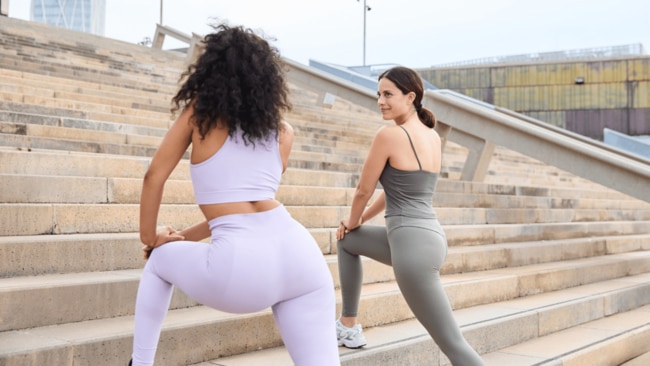
Lifestyle
Don't miss out on the headlines from Lifestyle. Followed categories will be added to My News.
Whether it’s making friends with carbs or going low impact, these are the tweaks wellness gurus swear by to keep their health in check.
Ever wondered how the health pros do it? How top personal trainers get up before the sun every morning and head to the gym without hitting the snooze button? How leading nutritionists maintain a healthy relationship with food? Or even how positivity master, Dr Happy, blocks out negative mental chatter?
While it might seem like these experts have cracked the wellness code, this wasn’t always the case. Their secret? Slotting surprisingly small changes into their daily routine that can have a major impact on wellbeing.
From embracing mindful breathing techniques to ditching traditional high-impact, high-cardio exercise methods, they’ve each found what works for them and their tips are total game changers – even if it means giving up coffee. (Stay with us on this one.)
We’ve called upon a bunch of highly respected experts, each a pro in their respective fields, to champion the pillars our Health of the Nation 2024 survey showed that you care most about. Covering everything from fitness, recovery and nutrition to gut health and mindfulness, these are the hottest tips for optimal living, courtesy of the best in the biz. You’re welcome.
The mindfulness expert: Zoe Klein, breathwork coach and Nike Well Collective yoga instructor
“I count my breath to mute my stress”
“Like so many of us, I often feel overwhelmed at the start of the week. Mondays suck, even if you do love your job, because going from relaxing on Sunday to being completely mentally switched on by Monday is jarring. The biggest thing I’ve learnt in my practice is that the key to outsmarting stress isn’t always about doing more or less, it’s about doing things better.
“Thanks to the crazy-busy world we live in, our days can be fairly unpredictable. But one thing that remains consistent is our breath and how we use it. We’re always breathing, which means there’s an opportunity to regulate stress at any given moment. Our inhale is like the gas pedal for the nervous system, and the exhale is like the break. Learning how to shape my breath specifically to how I’m feeling is like a superpower to calm my mind and feel good.
“If I’m feeling stressed, I take a really deep inhale and exhale by six counts. On my next inhale, I’ll exhale for eight counts and continue extending it until I feel my body and my mind releasing. Going back to the basics and understanding the fundamentals of functional breathing is how I gain perspective and remember that the world definitely won’t end if I don’t get all my emails done today.”
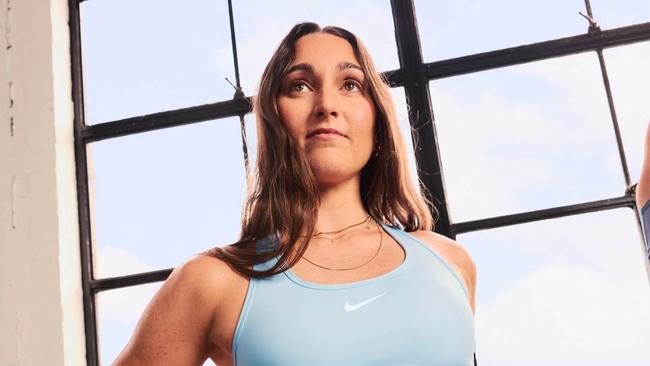
The metabolism expert: Dr Libby Weaver, nutritional biochemist and bestselling author
“I skip coffee in the morning for more energy throughout the day”
“More energy is something that pretty much every woman wants. Having worked at health retreats for years, where caffeine was off the menu, it never ceased to amaze me the difference in energy that I, and those who attended, experienced.
“Part of the reason for this is that caffeine binds to the adenosine receptors in your brain. Adenosine is calming however caffeine is stimulating and basically revs these receptors up.
“The flow-on effect is a signal to the adrenal glands to release adrenaline.
As a result, your heart beats faster, sending blood to your extremities and releasing extra sugar from the muscles and liver into the bloodstream to give you an immediate energy boost.
“Ultimately, the energy coffee gives you is a false economy – it’s making you feel wired rather than delivering sustained energy. When you stop, you’ll likely feel fatigued for a day or two and experience headaches as your brain adjusts to the absence of something it’s relied on.
“But once this initial effect subsides, patients never fail to say how much more consistent their energy levels are throughout the day. For optimal health and energy, it’s so important to nourish your body and not deplete it.
“So instead of reaching for coffee, I opt for a green tea. It still contains some caffeine, but much less than coffee, plus it also contains theanine which buffers the impact of the caffeine to a point.”
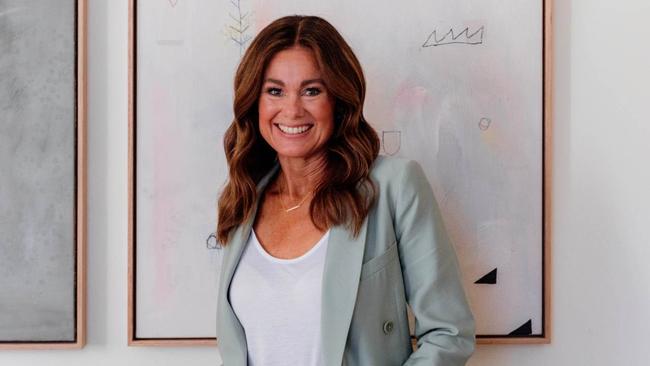
The happiness expert: Dr Tim Sharp (aka Dr Happy), psychologist and chief happiness officer at The Happiness Institute
“I prioritise social connection to feel happier”
“Although my nickname might suggest otherwise, I talk a lot about the fact that I’ve experienced quite severe mental ill-health, mostly depression and anxiety, across
my lifetime. When I shifted from a traditional clinical psychology approach to one that’s based in the roots of positive psychology, I learnt that focusing on psychological strengths and attributes was the best way to block out the tendencies that were contributing to it.
“Happiness isn’t always easy, but there are so many simple things we can do to create a happier environment. One of the biggest things I’ve learnt over the years is to foster and develop positive relationships. Independence is pretty highly valued in our society, and so often we’re conditioned to strive to be independent. But at the end of the day, we’re social animals and we live better when we feel connected and have a sense of belonging.
“Understanding this principle of connection helped me change the way I think about life and be more conscious about those around me – that had a huge impact on both my own happiness and my work. So phone a friend, arrange a catch-up for coffee and spend time with those you love. It will instantly improve your wellbeing, and quality of life.”
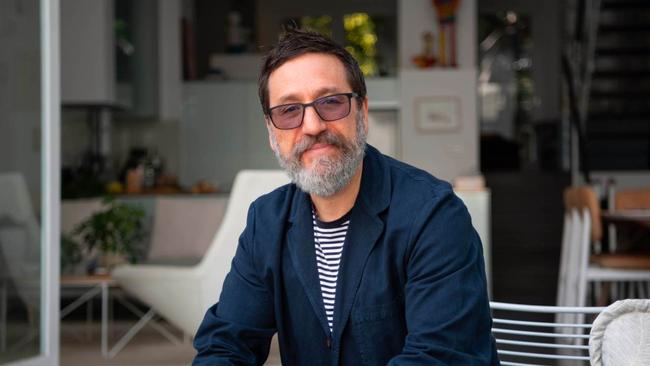
The sleep expert: Carly Dober, psychologist and sleep expert at Bonny
“Getting out of bed helped me sleep better”
"The thing that was most impactful for me was when I realised that sleep deprivation impacts your capacity to manage your emotions, which is counter-intuitive when you’re trying to fall asleep and can’t.
"I had chronic insomnia from the age of eight until I was 23 and while it took a combination of things to finally improve my sleep quality, but working on my frustration and anxiety in the evening when I wasn’t able to fall asleep was the most pivotal thing. It’s actually quite normal for adults to have one or two nights of broken or no sleep in a four week period, but there is nothing worse than not being able to rest when you’re exhausted.
"The biggest hack I’ve learned if I can’t fall asleep is to get out of bed and do something with low stimulation, such as reading a book or doing some light slow stretches, in another room. It’s important to remove your association with stress, anxiety and irritability away from the bedroom in order to keep that space as restful as possible."
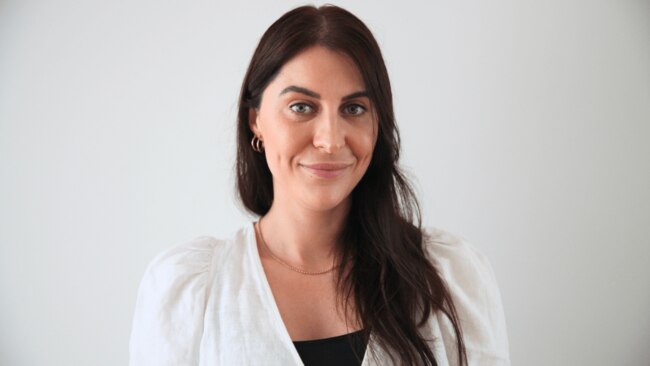
The food expert: Luke Hines, functional nutritionist and trainer
“Cooking from scratch changed my relationship with food”
“People are often surprised to see me now, working in the health field and full of vitality, because I was an overweight kid. When I started exercising and taking my health seriously as an adult, I had a major desire to fuel myself correctly, and help others do the same, which is where the cookbooks started.
“When I swapped out the comfort food I was eating for real, nourishing food, I very quickly fell in love with how it made me feel – both physically and mentally. Mainly since our gut and brain are so closely connected.
“There’s no ‘one-size-fits-all’ approach to diet and lifestyle. I’ve tried Paleo, keto, low-carb, plant-based and everything in-between, and they all have their pros and cons. The key takeaway from everything that I’ve learned over the years is to cook from scratch.
“Every ingredient, and how we cook it, either supports our gut health or it doesn’t. The more we can support our gut, the better we’ll feel. I don’t make things that are particularly fancy; my go-tos are meals like chicken souvlaki. But that’s the key: simple food, done well, that tastes great.”
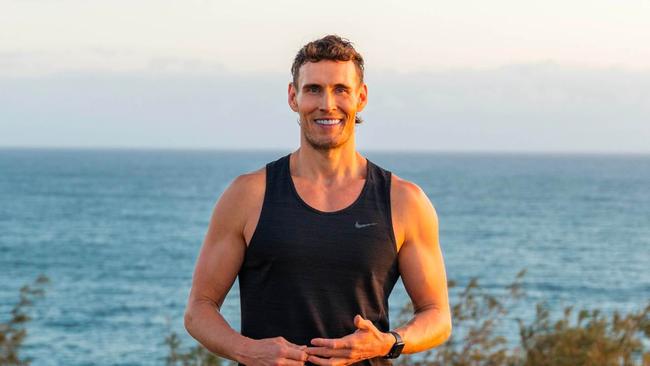
The hormone expert: Dr Izzy Smith, runner and endocrinologist
“I increased my carb intake to get my period back”
“I’ve always loved sport. But part of the reason why I became an endocrinologist was because of my own experience with a condition called relative energy deficiency in sport [RED-S] when I was a young athlete.
“I was training hard, and basically lost my menstrual cycle and reproductive hormone production because I wasn’t consuming enough food to cater to my energy expenditure. It’s such a common condition in female athletes and the loss of oestrogen can have severe consequences, including an impact on immunity.
“Going through this forced me to unlearn diet culture, especially the demonising of carbohydrates. Once I realised the importance of proper fuel for hormone health, not only did my period return but I was able to unleash my full potential as an athlete.
“The same goes for all women. Whether we’re a weekend warrior or world champion, we always operate better when we eat well. I now eat a mainly plant-based diet – with plenty of seafood and good carbs – and it’s made a huge difference.”
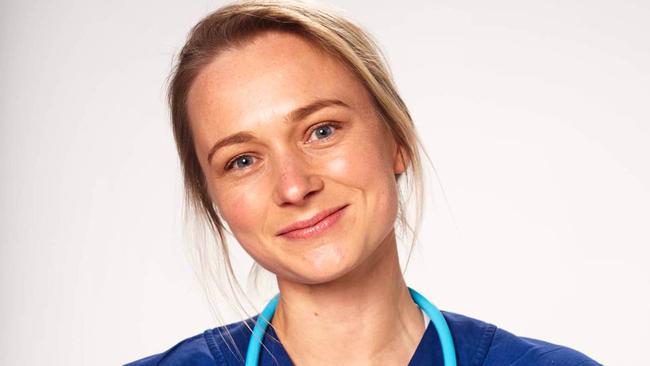
The fitness expert: Luke Zocchi, Centr fitness trainer
“I swap HIIT for LIIT to actually enjoy exercise”
“While I talk about exercise for a living, sometimes I dread training. When I was younger, my mentality was ‘the harder the workout, the better it is for my fitness’. Now I know keeping fit isn’t about killing myself every session; working at a lower intensity can reap the same results.
“Low-intensity training is just as important for burning fat as high intensity. I grew up thinking I needed to do a heap of cardio to stay fit, but you can drop body fat by doing resistance and endurance-based training.
“Training in ‘zone two’, for example, like walking on an incline for 40 minutes, can be so beneficial for cardiovascular fitness. I’m now much more respectful of my body, prioritising rest and recovery. The end result is that I genuinely enjoy my workouts more now than I ever did, and that definitely can’t be a bad thing.”
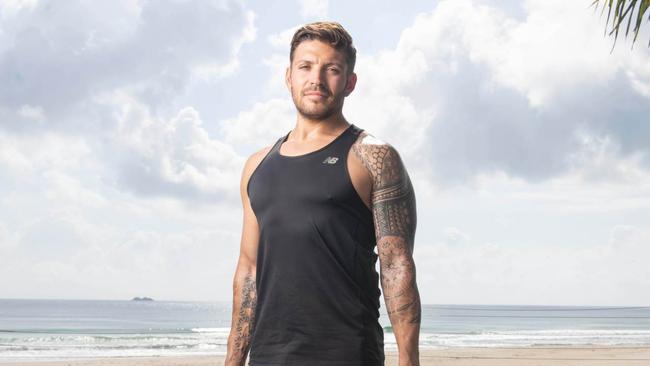
Your better health tool kit
Bonny Winter Quilt, $449 from bonny.com.au
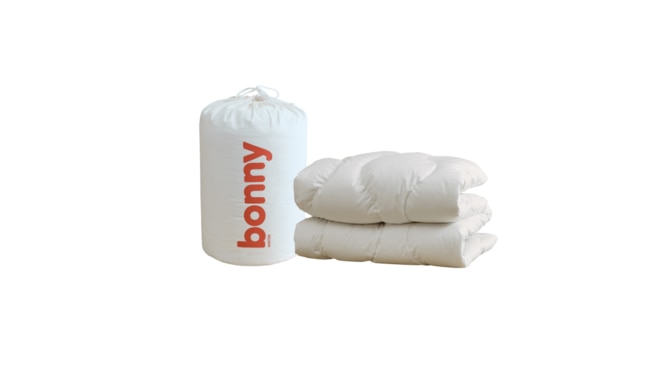
Our Place Home Cook Duo, $575 from ourplace.com
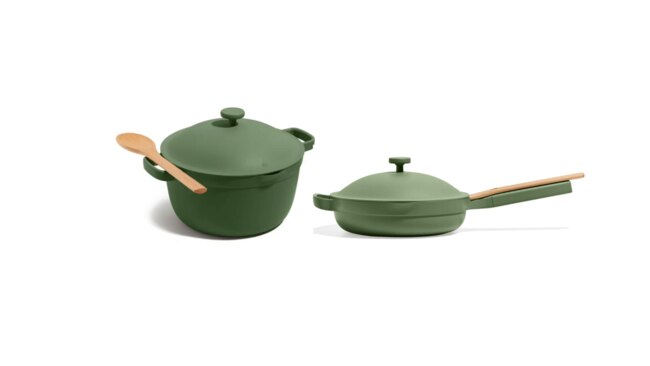
Nike Pegasus Trail 5, $200 from nike.com.au
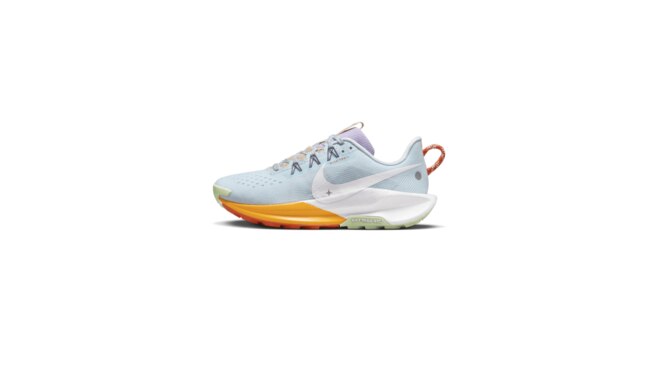
Originally published as 7 easy ways to hack your health (according to the experts)


